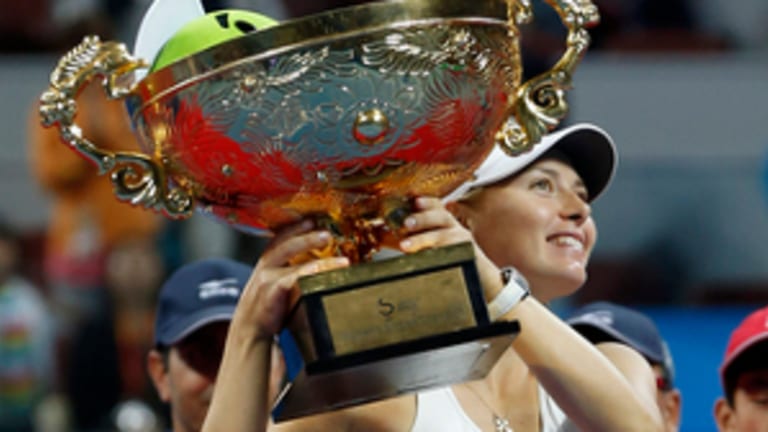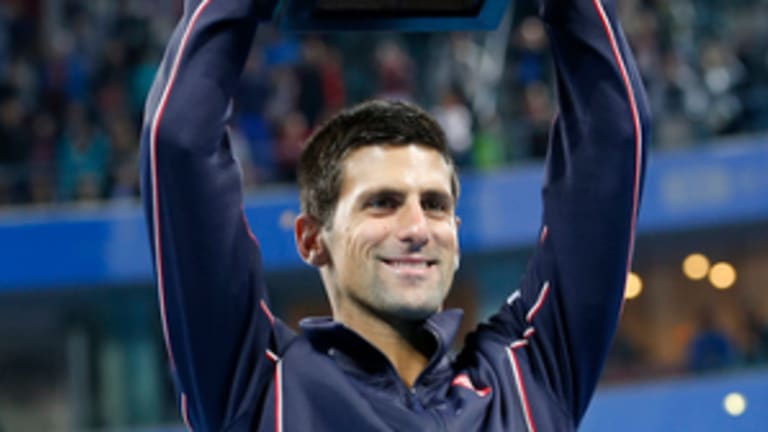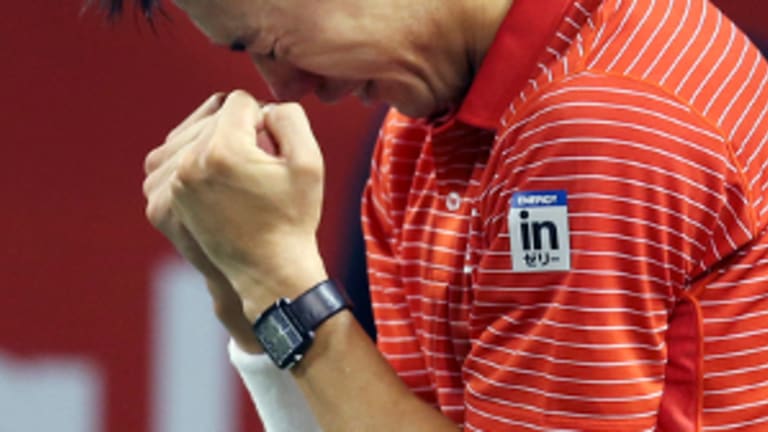“At this time last year, I was somewhere in Europe getting treatment for my shoulder, just trying to find different medical perspectives on how to treat it and how to get it better.... It’s definitely great to be a year later in a situation where this is my fourth title of the year.”
For some players, clenching their fists is a way to point an exclamation point a special moment in a match; for Maria Sharapova, it’s a way of life. When she’s waiting to receive serve, she keeps her left hand balled-up tight. To get herself really fired up, she might pound her left leg with it.
This type of self-induced stress obviously isn’t for everyone, but Sharapova’s perma-clenched fist seemed to me to be the right metaphor for her 6-4, 2-6, 6-3 win over Petra Kvitova in the final of the China Open this weekend. When it mattered, Sharapova kept her game wrapped up tight, while Kvitova played it a little too fast and loose.
Maria and Petra split the first two sets, to the likely surprise of no one. Over the last couple of years, each has staked out a claim as the queen of the three-set match. Sharapova has turned into a notoriously slow starter, while Kvitova is forever careening between incandescence and flame-out, between Good Petra and Bad Petra. Yesterday in Beijing, Sharapova earned the title, and Kvitova lost it, at the start of the deciding set.
Coming into the third, Good Petra was on a roll, and Sharapova’s serve, the game’s greatest mystery shot, had gone south on her again—she opened the final set by committing her 10th double fault. But while Sharapova tripped, she didn’t stumble. She went for a little less, aimed for depth rather than outright winners, and tried to establish herself farther up in the court. It was enough to coax Bad Petra out of her hiding place.
The first ominous note came on the set's opening point, when Kvitova went for too much on a makable forehand and missed it wide. With anyone else, it might have been a one-off; with Kvitova, it was a sign. Later in the same game, she sent another backhand wide, and then a forehand wide. A few minutes after that, she was down 0-3. Kvitova, in a groove, had relaxed and let herself get too loose; Sharapova had never unballed her fist.


